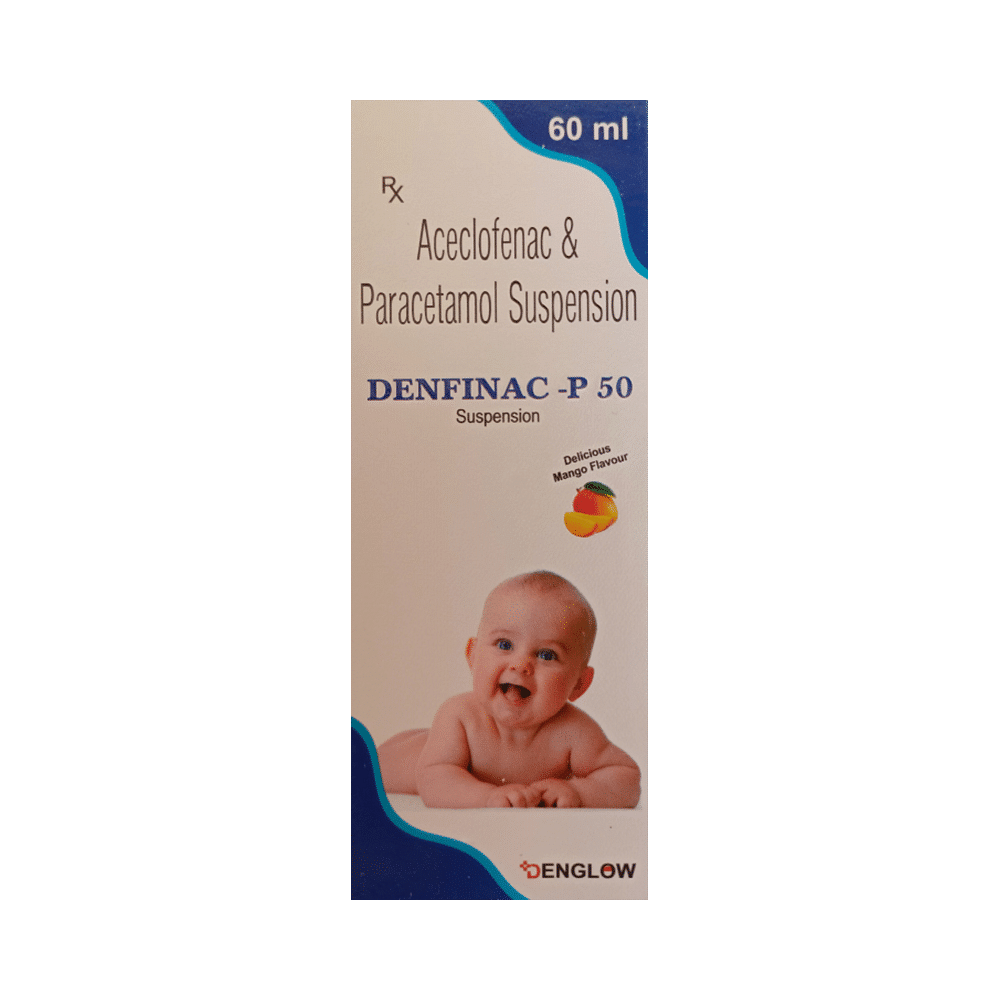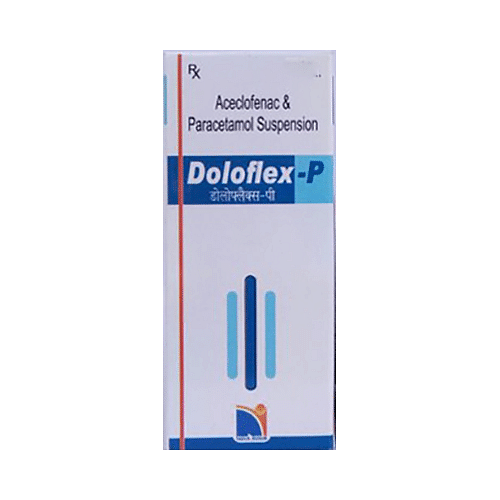
Zeconac P Oral Suspension
Manufacturer
Dalcon Drugs Pvt Ltd
Salt Composition
Aceclofenac (50mg) + Paracetamol (125mg)
Key Information
Short Description
Zeconac P Oral Suspension helps lower body temperature (fever) and reduce pain and inflammation (redness and swelling) both in infants and children.
Dosage Form
Oral Suspension
Introduction
Zeconac P Oral Suspension is a medication that helps to lower body temperature (fever) and reduce pain and inflammation (redness and swelling) both in infants and children. It is available in the form of an oral suspension.
Directions for Use
Give this medicine after food to avoid abdominal discomfort in your child.
Safety Information
Side Effects
No common side effects listed.
How it works
Zeconac P Oral Suspension comprises two active ingredients: Aceclofenac and Paracetamol. These medicines work by blocking the action of chemical messengers responsible for pain, fever, and inflammation (redness and swelling).
Quick Tips
Give plenty of fluids to your child to ensure proper body hydration (water-levels) Give your child a balanced diet Encourage your child to have optimum sleep since sick children get tired soon and getting plenty of rest helps them recover faster Maintain a log of your child’s temperature. If you do not see any improvement contact your child’s doctor for advice Keep a track of the dose and the frequency in which you have given this medicine to your child. This will help prevent overdosing Stop the medicine and consult your child’s doctor in case your child exhibits allergic rash or stomach pain soon after taking this medicine.
Related Medicines

Winimol P Oral Suspension

Hilnac P Oral Suspension

Denfinac-P 50 Oral Suspension

Zycer P Oral Suspension

Doloflex-P Oral Suspension

Clonic-P Oral Suspension

Zacrol P Oral Suspension

Sysgesic AP Oral Suspension

Kayslide-AP Oral Suspension

Arismol-P Oral Suspension
Frequently asked questions
Can I increase or decrease the dose of Zeconac P Oral Suspension for my child by myself according to the severity of illness?
No, it is not recommended to alter the dose of the medicine without consulting a doctor. While increasing the dose without proper judgment may lead to toxicity, decreasing it may cause recurrence of symptoms. Therefore, consult your child’s doctor if you feel a change in dose may be needed.
How much Zeconac P Oral Suspension should I give to my child?
Your child's doctor will prescribe the appropriate dosage based on their condition and body weight. It is crucial to follow the prescribed dosing schedule as this ensures safe and complete recovery.
How should Zeconac P Oral Suspension be stored?
Zeconac P Oral Suspension should be stored at room temperature in a dry, cool place away from direct sunlight or heat sources. All medications should be kept out of the reach and sight of children to prevent accidental ingestion.
Can all children be given the same dose of Zeconac P Oral Suspension?
No, Zeconac P Oral Suspension cannot be given to everyone in the same dose. The doctor determines the appropriate dosage based on the child's age and body weight. This dosage might change as your child grows older. Always consult a doctor before giving any dose of this medication.
When will my child feel better?
While Zeconac P Oral Suspension may be required for a few days to weeks, depending on the severity of the infection, you can expect your child to experience reduced pain and fever as they take it per the doctor's instructions. If your child continues to feel unwell even after completing their prescribed course of medication, consult their doctor immediately.
Are there any serious side effects of this medicine for my child?
Although Zeconac P Oral Suspension is generally well-tolerated by children, watch out for any severe or prolonged reactions like persistent vomiting, body swelling, decreased urine output, or a severe allergic reaction. If you notice these symptoms, consult your child's doctor immediately.
Are there any specific contraindications associated with the use of Zeconac P Oral Suspension?
Zeconac P Oral Suspension is not recommended for patients with known allergies to its ingredients or other painkillers (NSAIDs). It should be avoided in those with a history of stomach ulcers, active or recurrent stomach ulcers/bleeding. Moreover, avoid this medication for individuals with a history of heart failure, high blood pressure, and liver or kidney disease.


